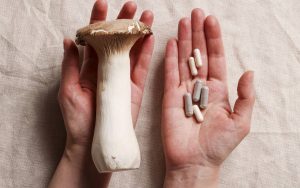The Ultimate Diet Food Plan for Healthy Weight Loss
Losing weight can be a challenging process, but having the right diet and food plan in place is key to seeing successful results. With some careful planning and commitment, you can develop healthy eating habits that will help you shed unwanted pounds and keep them off for good. In this comprehensive guide, we will provide you with the knowledge and tools you need to create a customized diet food plan that fits your weight loss goals and lifestyle.
Why Diet is Crucial for Weight Loss
When it comes to weight loss, diet plays an even bigger role than exercise. To lose one pound of fat, you need to have a calorie deficit of 3,500 calories. This means you need to burn 3,500 more calories than you consume to lose one pound. While exercise provides some calorie burn, it’s much easier to create a calorie deficit through your diet and eating habits. By planning your meals and choosing nutritious low-calorie foods, you can more effectively control your calorie intake and lose weight.
How Many Calories You Should Eat
To lose weight at a healthy rate of one to two pounds per week, you need a daily calorie deficit of 500-1000 calories. To determine the target calorie intake for your weight loss diet, you need to calculate your maintenance calories. This is the number of calories your body burns through basic functioning and daily activities.
Many online calculators can provide an estimate of your maintenance calories based on your age, sex, height, weight, and activity level. Once you know your maintenance calories, subtract 500-1000 calories from that number to get your target calorie intake for weight loss. Consuming fewer calories than your body needs will result in weight loss over time.
Nutrients to Focus On
As you plan your diet food plan for weight loss, be sure to focus on getting adequate amounts of key nutrients that will help curb hunger, fuel your body, and provide essential vitamins and minerals. These include:
Lean Protein
Foods like fish, poultry, eggs, nuts, seeds, beans, and low-fat dairy are great sources of lean protein. Protein helps keep you feeling full and satisfied, builds and retains muscle mass, and can boost metabolism. Aim for 0.5-1 gram of protein per pound of body weight.
Healthy Fats
Don’t be afraid of healthy fats! Foods like avocado, olive oil, nuts, and fish provide essential fatty acids and also help control hunger. 25-30% of your daily calories can come from healthy fats.
Complex Carbs
Focus on getting complex carbs from fruits, vegetables, whole grains, beans, and lentils. Avoid simple sugars and processed refined grains. Complex carbs are high in fiber which aids weight loss.
Veggies and Fruits
Pile your plate high with low-calorie, nutrient-dense fruits and vegetables. They are full of fiber and volume that will fill you up with fewer calories. Aim for 4-5 servings per day.
Meal Timing
In addition to eating the right foods, meal timing can also help boost your weight loss. Here are some tips:
- Eat breakfast – Starting your day with a balanced breakfast helps kickstart your metabolism and prevents overeating later. Make sure to include lean protein, complex carbs, and healthy fats.
- Limit carbs at night – Reduce carbs in your evening meals to avoid blood sugar spikes and crashes leading to cravings. Focus on lean protein and veggies.
- Don’t skip meals – Going too long without eating leads to hunger and overeating. Keep your blood sugar stable by eating every 3-4 hours.
- Allow for snacks – Build snacks like fresh fruit, nuts, or yogurt into your diet plan to help control hunger between meals.
Sample Diet Food Plan
Here is a sample one-week diet food plan focusing on lean proteins, produce, whole grains, and healthy fats to promote weight loss:
Monday
Breakfast: Veggie omelet with avocado toast
Snack: Cottage cheese and sliced apple
Lunch: Grilled chicken salad with quinoa and veggies
Snack: Hummus and carrots
Dinner: Baked salmon with brown rice and asparagus
Tuesday
Breakfast: Greek yogurt with berries and almonds
Snack: Hardboiled egg and sliced bell pepper
Lunch: Turkey burger on whole wheat bun with salad
Snack: Edamame
Dinner: Chicken stir fry with broccoli and brown rice
Wednesday
Breakfast: Oatmeal with walnuts and banana
Snack: Low-fat string cheese and grapes
Lunch: Tuna salad whole grain pita and veggie soup
Snack: Chickpea snack mix
Dinner: Pork tenderloin with sweet potato and Brussels sprouts
Thursday
Breakfast: Veggie scramble with whole grain toast
Snack: Cottage cheese and melon
Lunch: Lentil veggie soup with garden salad
Snack: Green smoothie
Dinner: Sheet pan chicken fajitas with peppers and onions
Friday
Breakfast: Peanut butter banana toast
Snack: Plain nonfat Greek yogurt with berries
Lunch: Grilled chicken sandwich with tomato, avocado, and lettuce on whole-grain
Snack: Trail mix with nuts and seeds
Dinner: Baked cod with quinoa pilaf and spinach
Saturday
Breakfast: Veggie breakfast hash with egg
Snack: Apple slices and string cheese
Lunch: Chili lime shrimp bowl with rice and slaw
Snack: Cucumber slices and hummus
Dinner: Veggie and bean soup with garden salad
Sunday
Breakfast: Spinach mushroom omelet with whole-grain toast
Snack: Seaweed crisps
Lunch: Chicken Caesar salad
Snack: Sliced pear and almond butter
Dinner: Pasta primavera with shrimp
Sample Meal Ideas
Here are some more healthy meal ideas that work for a diet food plan:
Breakfast: Oatmeal, Greek yogurt with fruit, boiled or scrambled eggs, peanut butter on toast, smoothie
Lunch: Tuna/chicken salad, veggie and bean soup, grilled chicken sandwich, shrimp salad wrap, quinoa salad
Dinner: Grilled salmon, chicken breast or shrimp with roasted veggies and quinoa or brown rice, veggie stir fry, turkey chili with salad, vegetarian bean chili
Snacks: Fresh fruits, veggies with hummus, cottage cheese, hard-boiled eggs, unsalted nuts/seeds, air-popped popcorn, protein bar
5 FAQs About Diet Food Plans for Weight Loss
- How much weight can I expect to lose per week?
A healthy weight loss rate is 1-2 pounds per week. Losing weight too quickly can be unsafe and is hard to sustain long term. Be patient and stick with your plan.
- Do I need to count calories forever?
Tracking calories can be helpful when first starting a diet plan to understand appropriate portion sizes. As you get accustomed to eating proper portions, you may not need to count calories as closely.
- What if I hit a weight loss plateau?
Plateaus are normal. Adjust your calorie intake, exercise more, reduce sodium, drink more water, and be patient. Changing up your exercise routine can also help boost loss.
- What about cheat meals?
It’s fine to indulge occasionally. Be mindset that it’s just for that meal, not for the whole day. Get right back on plan with your next meal.
- How can I stay motivated?
Celebrate small successes, find an accountability partner, keep tempting foods out of the house, focus on how much better you feel, and remind yourself it takes time. Commit to your health.
Putting it All Together
Losing weight requires dedication, resilience, and lifestyle change. But the payoff is huge. You can lower blood pressure, reduce risks for many diseases, improve energy, sleep better, and simply feel healthier. Follow these diet tips to get started:
- Calculate your calorie needs
- Meal plan focusing on lean proteins, fruits/veggies, and whole grains
- Include healthy snacks to control hunger
- Drink water and stay hydrated
- Track your intake in a food diary
- Focus on how good you feel as the pounds come off
Stick with your diet food plan and adopt it as a new lifestyle, rather than a temporary diet. The healthy eating habits you form now will serve you for the rest of your life. You’ve got this!




